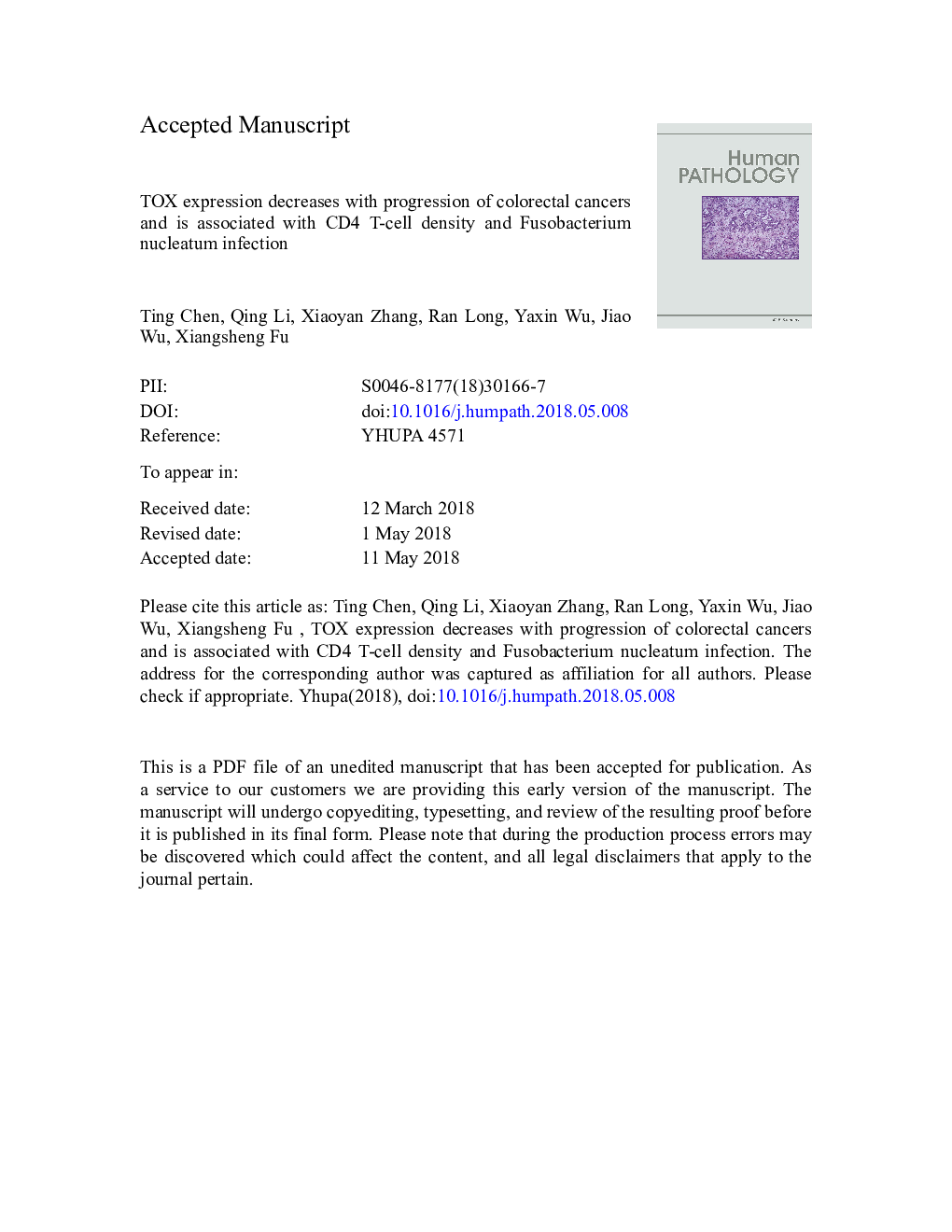| Article ID | Journal | Published Year | Pages | File Type |
|---|---|---|---|---|
| 8807441 | Human Pathology | 2018 | 25 Pages |
Abstract
Fusobacterium nucleatum in the tumor microenvironment plays an important role in the development of colorectal cancer. The underlying mechanism of action, however, remains to be elucidated. We evaluated the relation of F nucleatum amount to thymocyte selection-associated high-mobility group box (TOX) protein expression and CD4+ T-cell density in 138 human colorectal tissues. TOX expression and CD4+ T-cell density in Fnucleatum-negative tissues were significantly higher compared to those in Fnucleatum-positive tissues (Pâ¯<â¯.001 and Pâ¯=â¯.002, respectively). We found a negative correlation between F nucleatum abundance and TOX expression (Pâ¯<â¯.001) and CD4+ T-cell density (Pâ¯<â¯.001). TOX expression in normal mucosa, hyperplastic polyps, and adenomas was significantly higher than in sessile serrated adenomas and different stages of carcinomas (Pâ¯<â¯.05). Moreover, CD4+ T-cell density in high-TOX expression tissues was significantly higher than in low-TOX expression tissues (Pâ¯=â¯.003). A positive correlation was found between TOX expression and CD4+ T-cell density in colorectal tissues (Spearman correlation coefficient: 0.362, 95% confidence interval: 0.051-0.641, Pâ¯=â¯.022). Our findings suggest that F nucleatum may suppress antitumor immune responses by decreasing CD4+ T-cell density and TOX expression in the progression of colorectal cancer.
Related Topics
Health Sciences
Medicine and Dentistry
Pathology and Medical Technology
Authors
Ting MS, Qing MS, Xiaoyan MD, Ran MD, Yaxin MS, Jiao MS, Xiangsheng MD, PhD,
